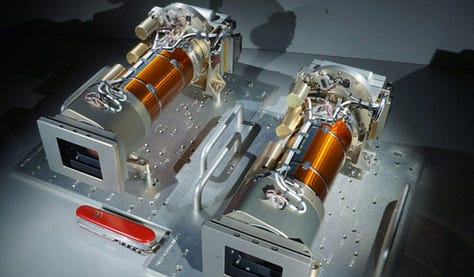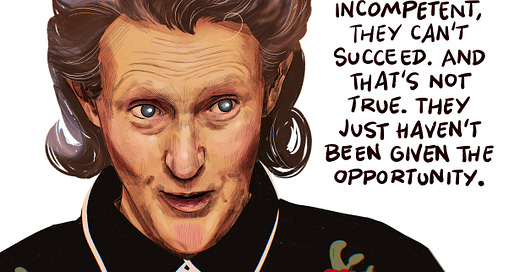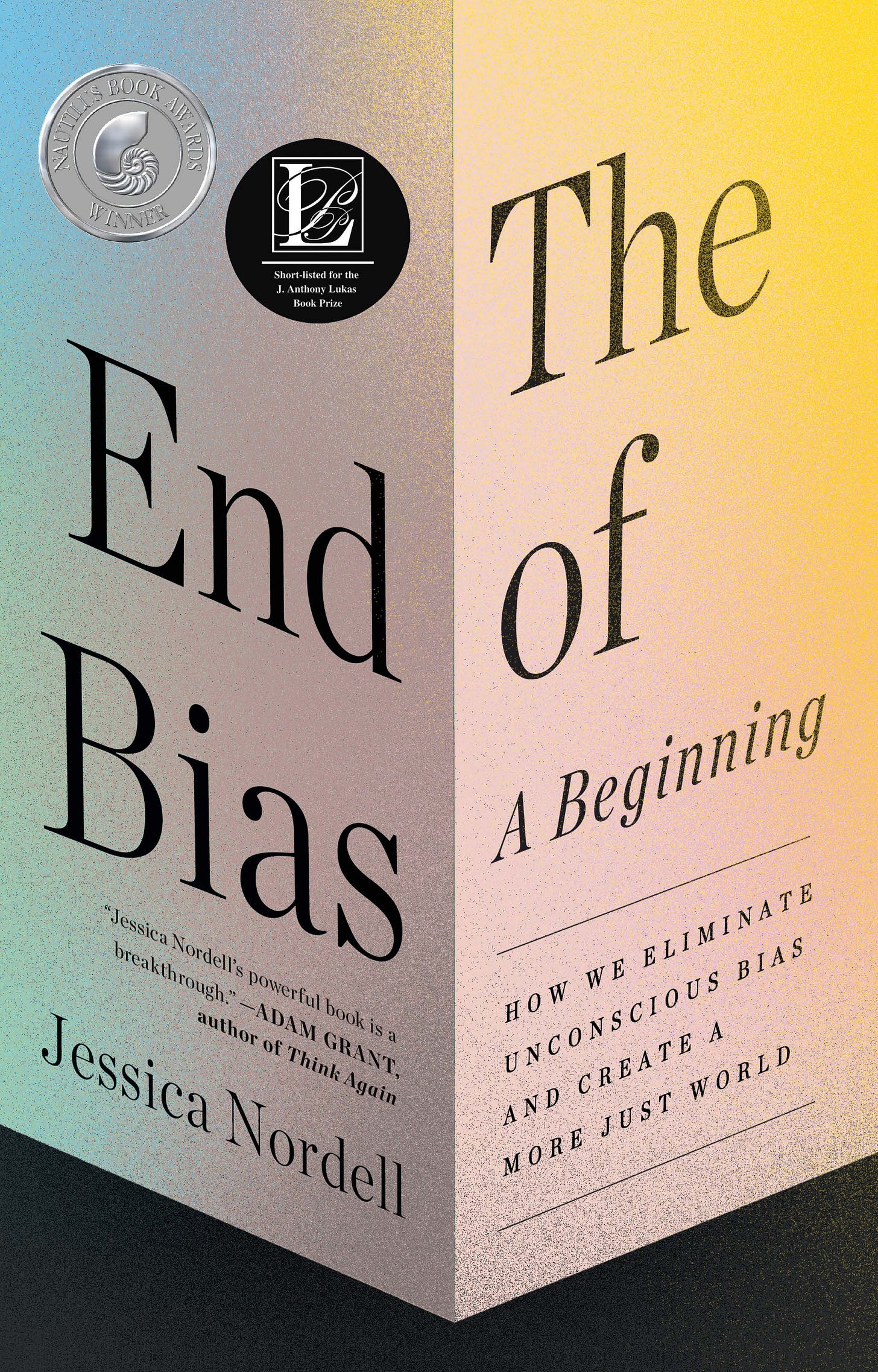The Secret Gifts of Visual Thinking
Temple Grandin on types of brilliance, hidden disasters, and Smell-O-Vision for dogs
I am insanely excited to share with you my conversation with the inimitable Temple Grandin, the animal behaviorist who expanded our galaxy by becoming one of the first adults to publicly discuss having autism. When I heard her speak recently about her new book Visual Thinking, I knew HAD to talk with her: her depiction of visual thinkers— people who are gifted with mechanics and objects but totally overlooked by traditional schooling— was a portrait of my own husband. Here we chat about what schools should do differently, why so many kids are being diagnosed with autism today, and how to avert nuclear disaster.
When you describe visual thinkers, you are describing my husband. He can fix anything. He has an almost spiritual relationship with objects. He taught himself software engineering and has a career he loves. But he almost flunked out of high school. He could not do math. His whole academic life, he thought he was a failure.
This is similar to people that built a lot of equipment for me. You have brilliant people in the shop inventing equipment and patenting it that barely graduated from high school, could not do higher math, but had taken welding and then started little shops and turned them into great big shops.
I barely graduated from college or high school. I failed all the SATs. I got into college on probation. I don't know how I could graduate my school right now.
I barely graduated from college or high school. I failed all the SATs. I got into college on probation. In California, I don't know how I could graduate my school right now. I can't pass algebra. I wouldn't even be allowed in an auto shop class.
I can only imagine how many students feel like failures because schools are not set up for them.
Oh yes. When I was first working on projects in the seventies, I looked at my drawings, and I go, I guess I'm not stupid. A stupid person wouldn't have done this. I had a huge urge when I was in my twenties to prove I wasn't stupid. A lot of people thought I wouldn't amount to anything. I had no idea visual thinking existed.
When did you realize that you were a visual thinker?
My first inkling was at an autism conference in my late thirties. A speech therapist said, “Think about a church steeple. How does it come to your mind?” And I'm seeing specific ones, like a series of PowerPoint slides. And the therapist just said, “Two-line pointy thing.” And I'm going, “Wow, that's not how I think.”
Engineers calculate risk. I see it.
I finally figured out there's actually three kinds of specialized thinking. There's object visualizers like me, people that design mechanical equipment and cannot do higher math. Mechanical stuff, photography, working with animals, and art— those four things go together. And then you have the visual-spatial, mathematical pattern thinker that's also good at music— math, chemistry, physics, and music. And then of course there's people that think in words, the verbal thinker who tends to overgeneralize.
How does visual thinking affect how you approach problems?
In the Fukushima nuclear reactor disaster, the mathematicians did a fabulous job of making it earthquake proof. All the calculations were perfect-- everything worked fine. Twenty minutes later the tsunami drowned it. The water came over the sea wall and drowned the emergency cooling pump. Engineers who are pattern thinkers calculate risk. I see it. If it had simple water-tight doors, that would not have happened. They didn't see it. They didn't see it.

With cattle, the first thing I did is to look at what the animals were seeing. People thought I was crazy getting down into chutes. I noticed there'd be a shadow or a coat on a fence, and those distractions would make them stop. I found if I took these distractions out of the facility, the animals would go through it much more easily. They'd stop where the floor changed from dirt to concrete. If I smudged dirt up on the edge of the concrete to make less contrast between the dirt and the concrete, they'd go over it. It was obvious to me to look at what cattle were seeing.
Would you say being a visual thinker helps you understand animals?
An animal lives in a sensory based world. If you think mostly in words, you might have a hard time understanding how dog could think when it doesn't have language. But the dog’s nose is a hundred times more sensitive than ours. I just read some research that the dog has a big bundle of nerve fibers that go from the nose to the visual cortex. So now I'm thinking: smell pictures, three-dimensional smell pictures. What would that be like?
If you think mostly in words, you might have a hard time understanding how dog could think when it doesn't have language. If I was a dog, I'd get this nuanced three-dimensional smellscape.
Can you imagine?
Well, at a veterinary conference, I was going up the escalator into the trade show and I kind of leaned, and I could smell the machinery grease on the escalator, then put my head up and smell popcorn from the trade show. Then I turned this way. And I’m thinking, if I was a dog, I'd get this nuanced three- dimensional smellscape. Brand new research. I tell my students, to understand an animal, you have to get away from verbal language.
Fascinating. Do you think autism is linked to visual thinking?
Well, most people are mixes of different kinds of thinkers. With autism, you tend to get extremes. You can have an extreme object visualizer like me who can't do algebra. You also can have an extreme mathematician. Or you can have a verbal thinker that knows every fact about soccer games or some other thing that they're interested in.
Ah, so it’s not that people with autism are more visual, but they tend to specialize in one kind of thinking.
People with autism are less likely to have mixtures. They’ll be one or the other.
There was this attitude, “Oh, the stupid kids take shop.” I'll tell you right now, I worked with plenty of brilliant shop people. It’s a different kind of thought.
It seems like there's an invisible prejudice against visual thinkers in particular because people don't even know they exist.
In talks for big corporations, the first thing I tell them is you have to realize that different kinds of thinking exist. At this school where I gave a book talk, the principal did not know that they existed. And there was this kind of attitude, “Oh, the stupid kids take shop.” I'll tell you right now, I worked with plenty of brilliant shop people. It’s a different kind of thought— the skilled trades and designing equipment, that's a different kind of thought. And it often doesn't get enough credit.
I have a picture of the Mars Rover cameras, and they have beautiful hand-done wiring. Somebody built that on a workbench, in a shop.
And that’s a skill no one recognizes.
Exactly. The mathematicians got it to Mars, but the visual thinkers that maybe flunked algebra did the wiring.



There’s been so much emphasis on college as the right path for everyone-- I certainly thought that until I met my husband. The goal was equal opportunity. But in the process, we’ve totally devalued the technical, vocational path.
We actually have a huge shortage right now of high-end skilled trades people to fix factories, fix escalators and elevators. I went to a state-of-the-art poultry processing plant. Almost all the equipment had been imported from Holland. Why? Because they've kept their tech track. They don't stick their nose up at the tech track.
If you're slightly autistic, you're gonna really care about that water works and it's gonna be the most important thing in your life. And you need to thank that person who loves that waterworks.
We’re losing out on a big part of making the world work.
There's two parts of engineering. Visual thinkers like me who can't do math that do the clever equipment. And things like power and water requirements, that's done by the mathematical engineer. You need to have the whole team. We're losing my kind of thinker. Who's gonna keep the water works running? When you turn on the tap, you get clean water. Somebody has to make that work. Somebody has to build it and somebody has to maintain it.
Also, if you're slightly autistic, you're gonna really care about that water works and it's gonna be the most important thing in your life. And you need to thank that person who loves that waterworks and keeps it running for you so the clean water comes out of the taps.
What could schools do differently to support visual thinking?
Well the biggest problem is they took out all the hands-on classes. I'd put everything back in-- shop, art, sewing, cooking, music, woodworking, auto shop, technical theater. How can you find out you're good with tools if you never use tools? I was using a hammer and screwdriver in second grade.
Your best mechanic is probably gonna interview horribly. Maybe that airplane mechanic should be showing off the car he customized. That's how I sold Cargill back in the late eighties. I call it “The 30-Second Wow.”
What should companies be doing differently?
Well, your best mechanic is probably gonna interview horribly. Bring them in and try them out in the shop and see what they can do. Maybe that good airplane mechanic needs to be showing off the car that he customized. That's how I sold Cargill back in the late eighties. I sent a big drawing to the head of Cargill and pictures and some trade magazine article and a brochure. I call it “The 30-Second Wow.” You don't show that work to the HR department. You gotta show it to people that are gonna appreciate it.
Why do you think so many more children have an autism diagnosis than the past?
I think most of it is increased detection. Professors I had, people I worked with on building equipment, they never were diagnosed. I know people that own big shops that would be definitely diagnosed autistic today.
I was in fourth grade in the school cafeteria and we had melted chocolate ice cream. And I leaned down like a dog and I licked it with my tongue and the teacher picked it up and said, “You're not a dog.”
I think that the other thing is, we're not teaching social skills in the same structured way that we did in the fifties and sixties. Teaching kids to shake hands. We're not teaching table manners in a structured way.
I'll never forget, I was in about fourth grade in the school cafeteria and we had dessert and it was melted chocolate ice cream. And I leaned down like a dog and I licked it with my tongue and the teacher just picked it up and said, “You're not a dog.” And I didn't get any ice cream that day.
We're not teaching social skills in the same structured way that we did in the fifties and sixties. Teaching kids to shake hands. We're not teaching table manners in a structured way.
Do you think that she did the right thing?
Yeah. Manners were taught. Grownups corrected little kids. Kids are not growing up learning working skills. I always recommend to parents, your kids should do chores and walk dogs for the neighbors, or lawns, or do a volunteer job where they work for somebody outside the home, on a schedule.
That’s fascinating. So in the past, all kids got a lot of social instruction, which maybe concealed autism in kids who had it.
I think that might have something to do with some of the increased detection, especially on the fully verbal end of the spectrum. The kids that have delayed speech, they've always been detected, and it used to be just called retarded. That was the old word they used. I was very severe when I was four. I was the kind of kid they just put in an institution in the fifties.
Kids have this false idea that they're stupid, they're incompetent, they can't succeed. And that's not true. They just haven't been given the opportunity.
The thing I'm interested in right now at the age of 75 is I'd like to get the visual thinking kids turned on to doing things with their hands. Too many kids growing up never used a tool. And then they have this false idea that they're stupid, they're incompetent, they can't succeed. And that's not true. They just haven't been given the opportunity. And some of the funnest stuff I ever did was sitting around with the guys, trying to figure out how to build stuff. 🪴
Are you a visual thinker, a verbal thinker, a mathematical thinker, or a combination? How can we better value different kinds of thinking? Would love to hear your thoughts in the chat!
💫 Announcements 💫
*I’m currently booking keynotes and workshops through June 2023. Topics include Creating Cultures Beyond Bias, Inclusive Leadership, Tackling Unconscious Bias, and more. Please contact hello@jessicanordell.com to learn more.
*If your book club is reading The End of Bias: A Beginning, you can sign up here for a 30 min “Zoom with the author.” See you soon!
🐾 Recent Appearances 🐾
Recently chatted with Dan Harris of 10% Happier and Eric Zimmer of The One You Feed. Plus: Gregg Clunis of Tiny Leaps, Big Changes reflects on a key insight from The End of Bias about rethinking our definition of diversity!






Very awesome! My daughter has been diagnosed with autism. Temple Grandin Is definitely an inspiration and has helped my wife and I get out of our own way to believe our daughter will be okay. She’s a happy, artistic, animal loving, imaginative first grader who is doing well so far. She has Apraxia of speech which causes communication barriers. But we’re fortunate to know the basic framework of what her challenge may be. Thank you!
What an amazing conversation! Thanks so much for sharing this! And I love the insight into how my dog is perceiving the world!